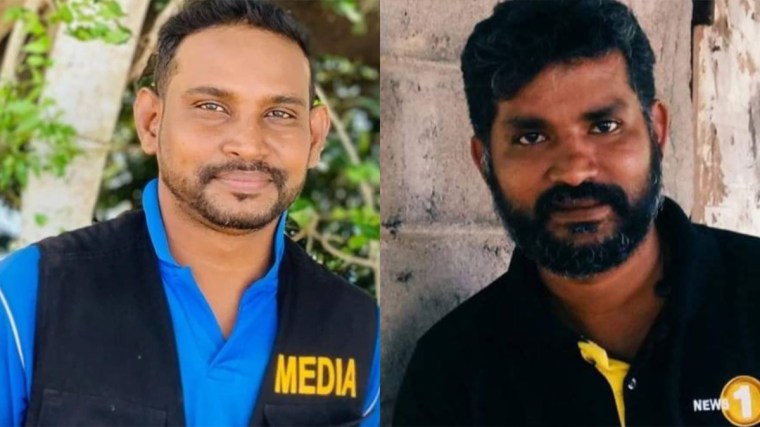On February 9, 2022, officers with the Criminal Investigation Department (CID), a branch of the Sri Lanka police, questioned Selvakumar Nilanthan, a freelance Tamil journalist and secretary of the Batticaloa District Tamil Journalists Association, for two hours at a police station in the town of Eravur in the eastern Batticaloa district, according to Tamil Guardian, a tweet by an advocacy group run by exiled journalists Journalists for Democracy in Sri Lanka, and the journalist, who spoke to CPJ by phone.
Two CID officers had visited Nilanthan’s home on February 7 and February 8 and demanded that he appear at the Eravur police station for questioning, according to those sources. Nilanthan told CPJ that he believes authorities have subjected him to repeated harassment in retaliation for his journalism and his association with the Batticaloa District Tamil Journalists Association.
During the questioning, three officers asked Nilanthan about his biographical history; connections to the Liberation Tigers of Tamil Eelam, a banned group in Sri Lanka; his relationship with diaspora news organizations; and his work with the Batticaloa District Tamil Journalists Association, according to those sources.
Nilanthan was questioned about similar topics on July 12, 2021, when officers with the Batticaloa District’s Terrorism Investigation Division, another branch of the Sri Lanka police, demanded the login details of his Facebook, WhatsApp, email, and bank accounts, as CPJ documented at the time.
Separately, at around 6 a.m. on February 4, 2022, police visited the home of freelance Tamil journalist Punniyamoorthy Sasikaran in Batticaloa city and presented a court order banning an non-existent protest march, according to a report by Journalists for Democracy in Sri Lanka, a copy of the order, and the journalist, who spoke to CPJ by phone.
Police told his parents, who had opened the door, that the journalist could be arrested without providing further details, in what Sasikaran told CPJ he believed to be an intimidation tactic. Sasikaran also serves as treasurer of the Batticaloa District Tamil Journalists Association.
According to the copy of the order, which was issued by the Batticaloa magistrate court, police received “credible intelligence” that Tamil political parties and local organizations would hold a protest march opposing the celebration of the national Independence Day.
Sasikaran said that he told the police that no such protest would occur and asked why he was receiving the order, as he is a journalist. The officers said that the information was based on “credible intelligence,” and that the head of the Batticaloa police had requested the order, according to Sasikaran.
Previously, police visited Sasikaran’s home on February 1 and 2, 2021, and served him a court order restraining organizers from moving forward with a Tamil-led protest march, which he said he planned to cover as a reporter, as CPJ documented.
On August 23, 2021, officers from the Batticaloa police’s Special Crime Branch questioned Sasikaran and accused him of organizing a January 2021 ceremony that paid tribute to Indian fishermen who died in Sri Lanka waters, which he said he merely covered as a journalist, as CPJ documented at the time.
In January 2020, unidentified people circulated leaflets in Batticaloa that said Nilanthan, Sasikaran, and five other journalists would be “given death punishment” for writing critically about the Sri Lankan government, according to Journalists for Democracy in Sri Lanka. Nilanthan and Sasikaran told CPJ that police did not take steps to protect their safety, and failed to identify who was behind the threats.
Sri Lanka police spokesperson Nihal Thalduwa did not respond to CPJ’s request for comment sent via messaging app.
[Editors’ Note: The first paragraph has been updated to reflect the correct description of Journalists for Democracy in Sri Lanka.]
